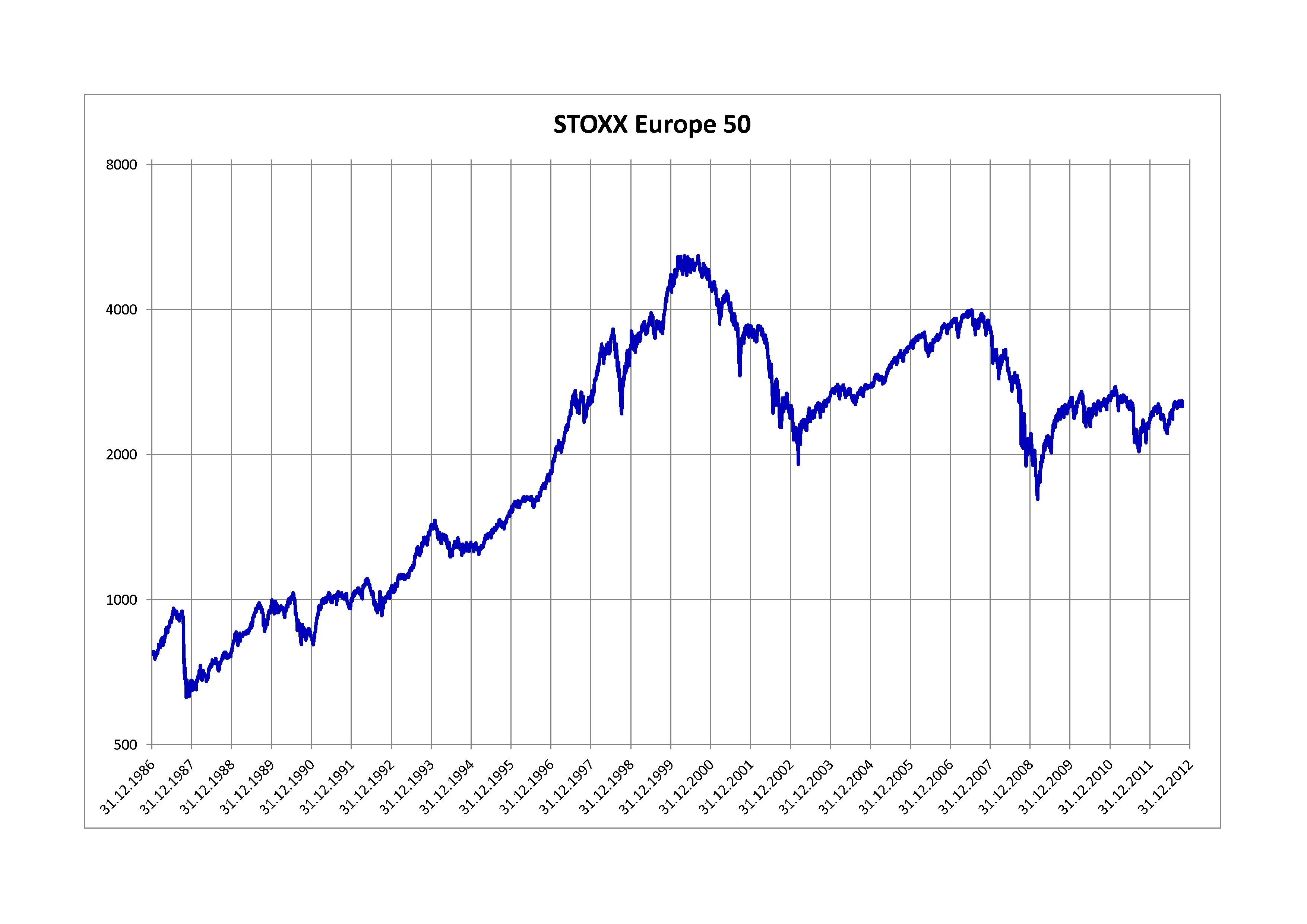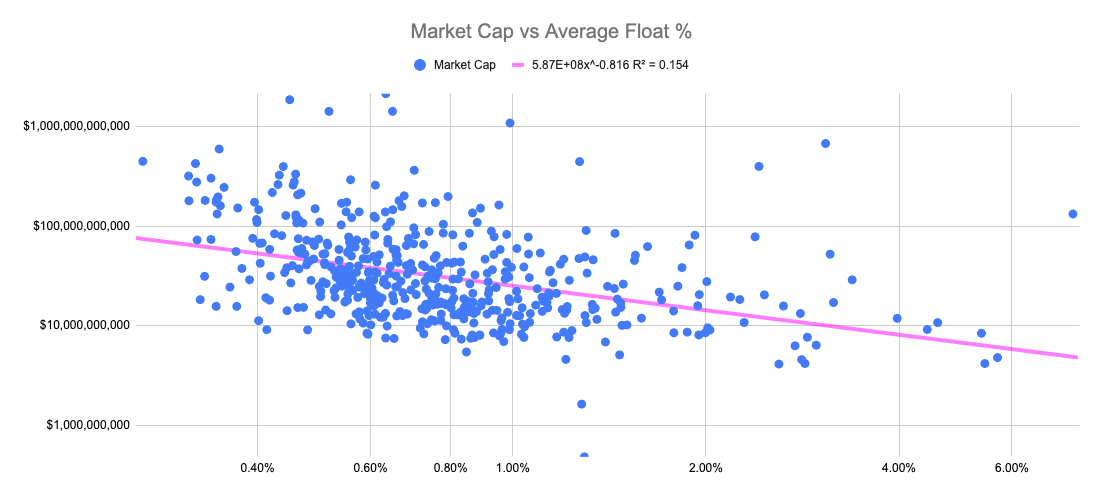|
STOXX
STOXX Ltd. is a Swiss globally integrated index provider, covering the world markets across all asset classes – developing, maintaining, distributing and marketing a comprehensive global family of strictly rules-based and transparent indices. STOXX is part of Qontigo, which was created in 2019 through the combination of STOXX, DAX and Axioma. Qontigo is part of Deutsche Börse Group, headquartered in Eschborn with key locations in New York, Zug and London. STOXX calculates more than 10,000 indices and in addition acts as the administrator for the DAXindices. STOXX indices are licensed to financial institutions and other users for use with exchange-traded funds (ETFs), mutual funds, futures, options, structured products, and other purposes. History STOXX Limited was formed in 1997 and in 1998 the first STOXX indices were launched. In 2000 STOXX was the first index provider to implement free float market capitalization in all its indices. In December 2009 Deutsche Börse a ... [...More Info...] [...Related Items...] OR: [Wikipedia] [Google] [Baidu] |
STOXX Europe 600
The STOXX Europe 600, also called STOXX 600, SXXP, is a stock index of European stocks designed by STOXX Ltd. This index has a fixed number of 600 components representing large, mid and small capitalization companies among 17 European countries, covering approximately 90% of the free-float market capitalization of the European stock market (not limited to the Eurozone). The countries that make up the index are the United Kingdom (composing around 22.3% of the index), France (composing around 16.6% of the index), Switzerland (composing around 14.9% of the index) and Germany (composing around 14.1% of the index), as well as Austria, Belgium, Denmark, Finland, Ireland, Italy, Luxembourg, the Netherlands, Norway, Poland, Portugal, Spain, and Sweden. The STOXX Europe 600 was introduced in 1998. Its composition is reviewed four times a year, in March, June, September, December. The index is available in several currency (AUD, CAD, CHF, EUR, GBP, JPY, USD) and return (Price, Net Retur ... [...More Info...] [...Related Items...] OR: [Wikipedia] [Google] [Baidu] |
STOXX Europe 50
The STOXX Europe 50 is a stock index of European stocks designed by STOXX Ltd., an index provider owned by Deutsche Börse Group and SIX Group. The index was introduced in February 1998. The STOXX Europe 50 index provides a blue-chip representation of supersector leaders in Europe covering almost 50% of the free-float market capitalization of the European stock market. The index covers 50 stocks from 18 European countries: Austria, Belgium, Czech Republic, Denmark, Finland, France, Germany, Greece, Ireland, Italy, Luxembourg, the Netherlands, Norway, Portugal, Spain, Sweden, Switzerland, and the United Kingdom. The index is weighted quarterly according to free-float market capitalization with components capped at a maximum of 10% and is reviewed annually in September. It is licensed to financial institutions to serve as underlying for a wide range of investment products such as exchange-traded funds (ETFs), futures, options, and structured products worldwide. Versions exc ... [...More Info...] [...Related Items...] OR: [Wikipedia] [Google] [Baidu] |
Deutsche Börse
Deutsche Börse AG () or the Deutsche Börse Group, is a German company offering marketplace organizing for the trading of shares and other securities. It is also a transaction services provider. It gives companies and investors access to global capital markets. It is a joint stock company and was founded in 1992. The headquarters are in Frankfurt. As of December 2010, the over 765 companies listed had a combined market capitalization of . On 1 October 2014, Deutsche Börse AG became the 14th announced member of the United Nations Sustainable Stock Exchanges initiative. Company More than 3,200 employees service customers in Europe, the United States, and Asia. Deutsche Börse has locations in Germany, Luxembourg, Switzerland, Czech Republic, and Spain, as well as representative offices in Beijing, London, Paris, Chicago, New York, Hong Kong, and Dubai. FWB Frankfurter Wertpapierbörse (Frankfurt Stock Exchange), is one of the world's largest trading centers for securi ... [...More Info...] [...Related Items...] OR: [Wikipedia] [Google] [Baidu] |
Index (economics)
In Statistics, Economics and Finance, an index is a statistical measure of change in a representative group of individual data points. These data may be derived from any number of sources, including company performance, prices, productivity, and employment. Economic indices track economic health from different perspectives. Influential global financial indices such as the Global Dow, and the NASDAQ Composite track the performance of selected large and powerful companies in order to evaluate and predict economic trends. The Dow Jones Industrial Average and the S&P 500 primarily track U.S. markets, though some legacy international companies are included. The consumer price index tracks the variation in prices for different consumer goods and services over time in a constant geographical location and is integral to calculations used to adjust salaries, bond interest rates, and tax thresholds for inflation. The GDP Deflator Index, or real GDP, measures the level of prices o ... [...More Info...] [...Related Items...] OR: [Wikipedia] [Google] [Baidu] |
Stock Market Indices
In finance, a stock index, or stock market index, is an index that measures a stock market, or a subset of the stock market, that helps investors compare current stock price levels with past prices to calculate market performance. Two of the primary criteria of an index are that it is ''investable'' and ''transparent'': The methods of its construction are specified. Investors can invest in a stock market index by buying an index fund, which are structured as either a mutual fund or an exchange-traded fund, and "track" an index. The difference between an index fund's performance and the index, if any, is called '' tracking error''. For a list of major stock market indices, see List of stock market indices. Types of indices by weighting method Stock market indices could be segmented by their index weight methodology, or the rules on how stocks are allocated in the index, independent of its stock coverage. For example, the S&P 500 and the S&P 500 Equal Weight both covers the sam ... [...More Info...] [...Related Items...] OR: [Wikipedia] [Google] [Baidu] |
Subsidiary
A subsidiary, subsidiary company or daughter company is a company owned or controlled by another company, which is called the parent company or holding company. Two or more subsidiaries that either belong to the same parent company or having a same management being substantially controlled by same entity/group are called sister companies. The subsidiary can be a company (usually with limited liability) and may be a government- or state-owned enterprise. They are a common feature of modern business life, and most multinational corporations organize their operations in this way. Examples of holding companies are Berkshire Hathaway, Jefferies Financial Group, The Walt Disney Company, Warner Bros. Discovery, or Citigroup; as well as more focused companies such as IBM, Xerox, and Microsoft. These, and others, organize their businesses into national and functional subsidiaries, often with multiple levels of subsidiaries. Details Subsidiaries are separate, distinct legal entit ... [...More Info...] [...Related Items...] OR: [Wikipedia] [Google] [Baidu] |
Free Float
In the context of stock markets, the public float or free float represents the portion of shares of a corporation that are in the hands of public investors as opposed to locked-in shares held by promoters, company officers, controlling-interest investors, or governments. This number is sometimes seen as a better way of calculating market capitalization, because it provides a more accurate reflection (than entire market capitalization) of what public investors consider the company to be worth. In this context, the ''float'' may refer to all the shares outstanding that can be publicly traded. Calculating public float The float is calculated by subtracting the locked-in shares from outstanding shares. For example, a company may have 10 million outstanding shares, with 3 million of them in a locked-in position; this company's float would be 7 million (multiplied by the share price). Stocks with smaller floats tend to be more volatile than those with larger floats. In general, the ... [...More Info...] [...Related Items...] OR: [Wikipedia] [Google] [Baidu] |
Low-carbon Economy
A low-carbon economy (LCE) or decarbonised economy is an economy based on energy sources that produce low levels of greenhouse gas (GHG) emissions. GHG emissions due to human activity are the dominant cause of observed climate change since the mid-20th century. Continued emission of greenhouse gases will cause long-lasting changes around the world, increasing the likelihood of severe, pervasive, and irreversible effects for people and ecosystems. Shifting to a low-carbon economy on a global scale could bring substantial benefits both for developed and developing countries. Many countries around the world are designing and implementing low-emission development strategies (LEDS). These strategies seek to achieve social, economic, and environmental development goals while reducing long-term greenhouse gas emissions and increasing resilience to the effects of climate change. Globally implemented low-carbon economies are therefore proposed as a precursor to the more advanced, zero-ca ... [...More Info...] [...Related Items...] OR: [Wikipedia] [Google] [Baidu] |
European Central Bank
The European Central Bank (ECB) is the prime component of the monetary Eurosystem and the European System of Central Banks (ESCB) as well as one of seven institutions of the European Union. It is one of the world's most important central banks. The ECB Governing Council makes the projects for the monetary policy for the European Union with suggestions and recommendations and to the Eurozone with more direct applications of such policies, it also administers the foreign exchange reserves of EU member states in the Eurozone, engages in foreign exchange operations, and defines the intermediate monetary aims and objectives, and also the common interest rates for the EU. The ECB Executive Board makes policies and decisions of the Governing Council, and may give direction to the national central banks, especially when doing so for the Eurozone central banks. The ECB has the exclusive right to authorise the issuance of euro banknotes. EU member states can issue their langu ... [...More Info...] [...Related Items...] OR: [Wikipedia] [Google] [Baidu] |
Eastern Europe
Eastern Europe is a subregion of the European continent. As a largely ambiguous term, it has a wide range of geopolitical, geographical, ethnic, cultural, and socio-economic connotations. The vast majority of the region is covered by Russia, which spans roughly 40% of the continent's landmass while accounting for approximately 15% of its total population."The Balkans" , ''Global Perspectives: A Remote Sensing and World Issues Site''. Wheeling Jesuit University/Center for Educational Technologies, 1999–2002. It represents a significant part of European culture; the main socio-cultural characteristics of Eastern Europe have historically been defined by the traditions of |
Eurozone
The euro area, commonly called eurozone (EZ), is a currency union of 19 member states of the European Union (EU) that have adopted the euro ( €) as their primary currency and sole legal tender, and have thus fully implemented EMU policies. The 19 eurozone members are Austria, Belgium, Cyprus, Estonia, Finland, France, Germany, Greece, Ireland, Italy, Latvia, Lithuania, Luxembourg, Malta, the Netherlands, Portugal, Slovakia, Slovenia, and Spain. The eight non-eurozone members of the EU are Bulgaria, Czech Republic, Croatia, Denmark, Hungary, Poland, Romania, and Sweden. They continue to use their own national currencies, albeit all but Denmark are obliged to join once they meet the euro convergence criteria. Croatia will become the 20th member on 1 January 2023. Among non-EU member states, Andorra, Monaco, San Marino, and Vatican City have formal agreements with the EU to use the euro as their official currency and issue their own coins. In addition, Kosovo and Mo ... [...More Info...] [...Related Items...] OR: [Wikipedia] [Google] [Baidu] |



.jpg)


